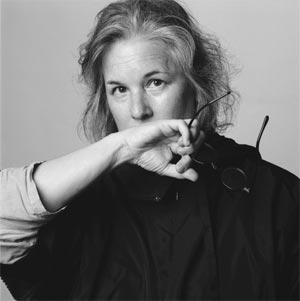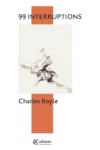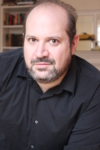 Last winter, Full Stop introduced “The Situation in American Writing,” a questionnaire adapted from The Partisan Review that asked questions about literature’s responsibility to address seismic changes in culture, the publishing industry, and the political and geopolitical landscape. That questionnaire, which featured responses from Marilynne Robinson, George Saunders, Victor LaValle, T.C. Boyle, Dana Spiotta, and dozens of other writers was illustrative of the concerns and preoccupations that writers carry with them when practicing their craft.
Last winter, Full Stop introduced “The Situation in American Writing,” a questionnaire adapted from The Partisan Review that asked questions about literature’s responsibility to address seismic changes in culture, the publishing industry, and the political and geopolitical landscape. That questionnaire, which featured responses from Marilynne Robinson, George Saunders, Victor LaValle, T.C. Boyle, Dana Spiotta, and dozens of other writers was illustrative of the concerns and preoccupations that writers carry with them when practicing their craft.
This year we are interested in the situation of writers, rather than writing, in the subjective experience of writing fiction (or in this case, memoir), rather than fiction’s responsibilities to respond to a rapidly changing world. To this end we are interested in examining the trying intellectual, creative, and emotional labor that is often unacknowledged or effaced in the public presentation of writing. What we’re interested in, to put it another way, is pathos.
This year, we’ve crafted a questionnaire asking writers about the effect writing has had on their physical, emotional, and economic health; on the idea of poverty being a precondition for writing well; on what makes writing truthful to one’s self and to readers. Ultimately, we are interested in the consequences of pursuing writing as a vocation.
Diane Williams is the author of several books, most recently of Vicky Swanky Is a Beauty, a widely praised collection of short fiction recently out in paperback. Diane is also the founding editor of the literary journal NOON.
How has your decision to write affected your health? Has it had negative effects on your personal life?
Writing has given me my life! No negative effects.
There is long tradition that links the craft of writing with poverty. Do you think that’s appropriate? Does poverty feel like the most appropriate condition for your practice as a writer?
Poverty is never appropriate. Poverty is evil.
In a rare 1983 interview the enigmatic and often dour Romanian writer Emil Cioran speaks about only reading Nietzsche’s letters because he became concerned with how untruthful Nietzsche’s published works seemed when read against the miserable condition of his day to day existence (isolated, weak, sickly, certainly not characterized by any sense of vigor). Is there any sense in which the truth of one’s condition should be related to the truth of one’s writing, even if in an oblique sense?
The truth of one’s condition need bear no relation to the truth of one’s writing. Great writing only ever features the facsimile of reality. The greater the writing is – the more persuasive – no matter if it is a lie.
Are you envious of other people’s success? If so, are you more envious of people’s success in your field or outside of it? Why?
Of course I am envious of other people’s successes. My envy is painful and abundant and sadly does not exclude anyone. However, I am blessedly released from this burden when in the vicinity of a transcendent work. What has happened in this case — I have fallen in love.
Aside from writing, do you have any other marketable skills? If so, are you ever tempted to cease writing fiction entirely so you can live a more stable life?
I can teach and I can edit — but no, I am never tempted to give up writing.
Give one example in which you had high hopes for success (artistic, commercial, or otherwise) but had those hopes dashed.
I always have high hopes that are continuously being dashed. So, there’s no necessity here to cite one example or many. Please forgive me.
Do you feel like the world owes you a chance to make a living as a writer?
But who or exactly where is the world? I’d go to the world if I could to plead for my cause.
What is the strongest emotional reaction you have ever elicited from a reader, either in your written work or during a reading? What is the strongest emotional reaction you have ever elicited from yourself during the writing process?
My father told me, “You’re possessed by the devil!” I’ve never recovered from hearing him say that. And, I was quite undone by my story “Pornography” — that first appeared in Conjunctions — and then in my first book. I seriously thought that I had gone to hell.
When are you at your most truthful as a writer?
I don’t know — although, it’s perhaps in those works that I have had to drag laboriously, against the most resistance, into existence. These have likely come forward from the deepest source.
This post may contain affiliate links.







